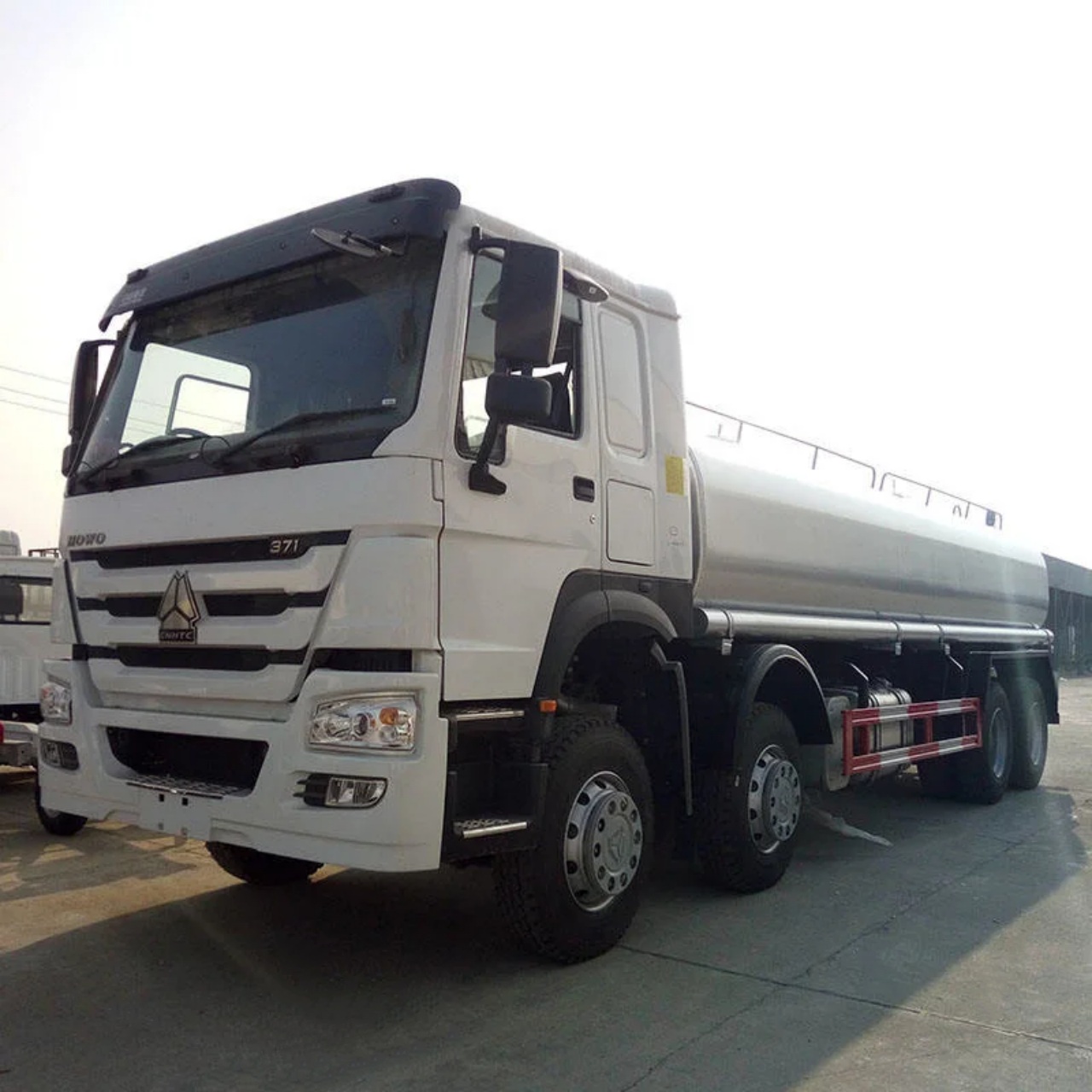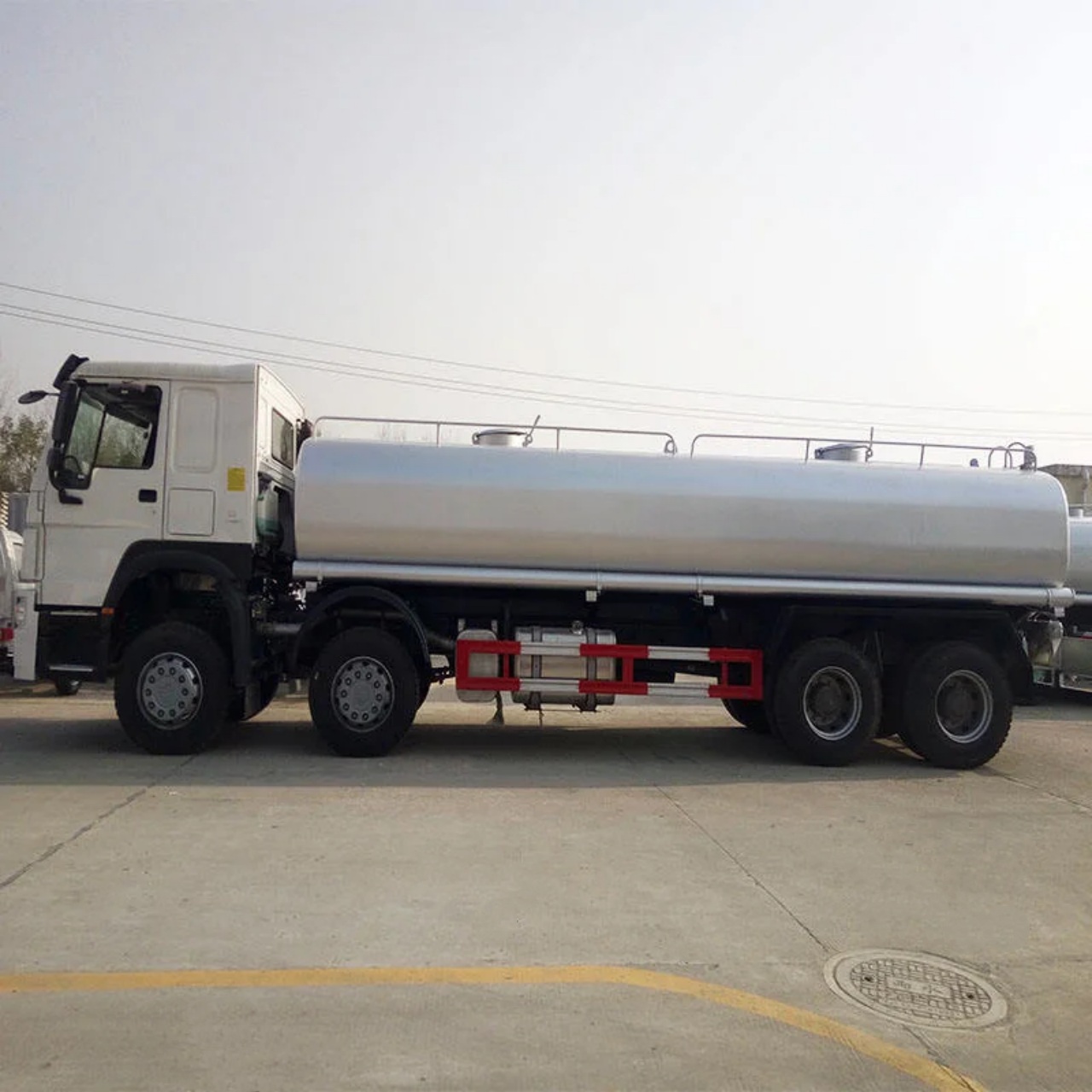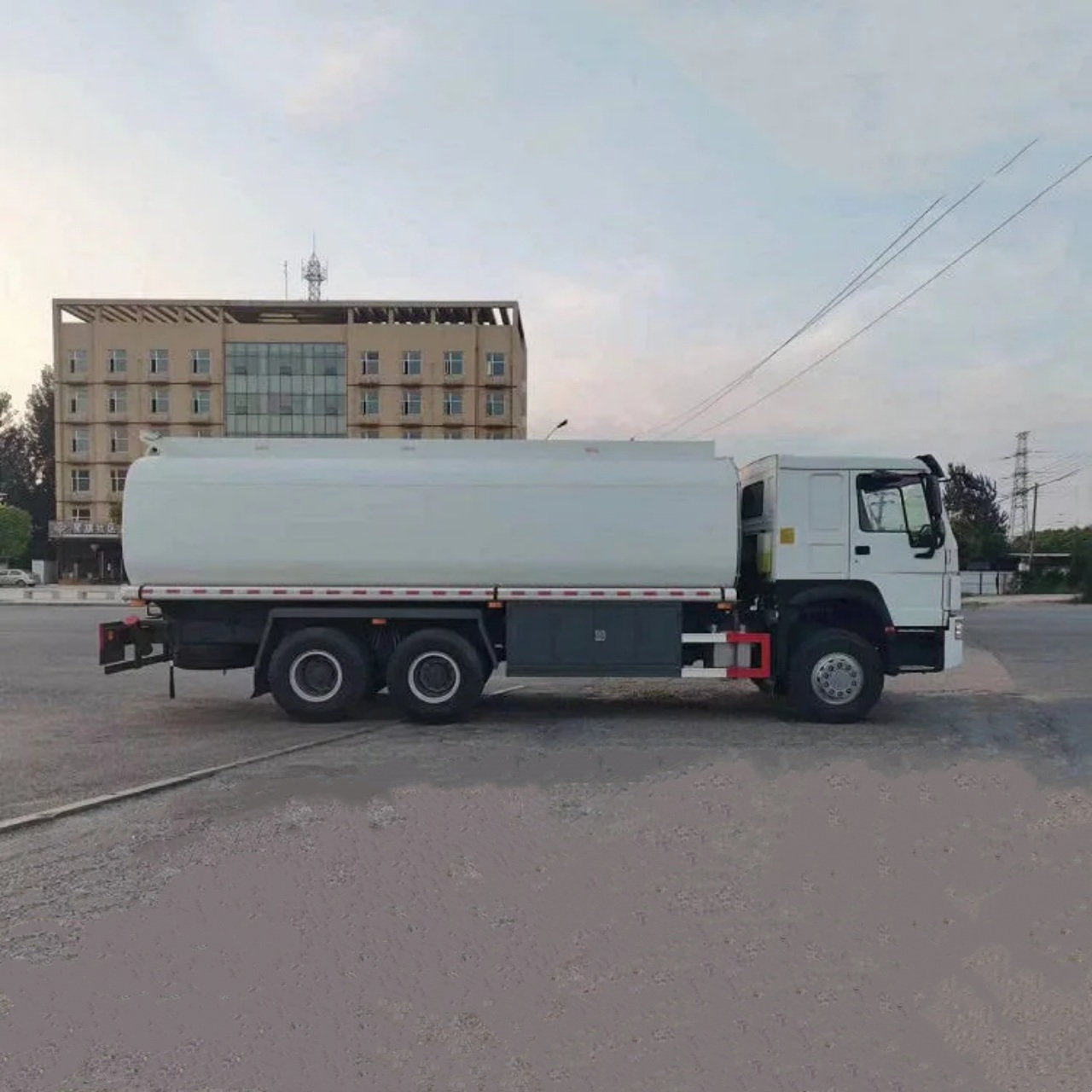Carbon steel tank trucks have become essential vehicles in various industries, providing reliable transportation for liquids, gases, and other materials. Their robust design, durability, and versatility make them a top choice for businesses that require tankers capable of withstanding the rigors of frequent transportation over long distances. Whether it’s for transporting chemicals, fuel, food-grade products, or other substances, carbon steel tank trucks stand out for their strength and practicality. In this article, we’ll explore the critical aspects of carbon steel tank trucks, delving into their materials, construction, applications, and maintenance needs.
The Role of Carbon Steel in Tank Trucks
Carbon steel, an alloy of iron and carbon, is a commonly used material for the construction of tank trucks owing to its high tensile strength, ease of fabrication, and cost-effectiveness. Carbon steel is preferred for its ability to handle the physical stresses encountered during transportation, such as vibration, pressure, and impact. Its versatility allows it to be used in a variety of configurations and for different industries, from the food and beverage sector to the petrochemical industry.
One of the primary reasons carbon steel is chosen for tank trucks is its high strength-to-weight ratio. This property enables the creation of tankers with the required durability without significantly increasing the weight of the truck. This is particularly important for maintaining fuel efficiency and maneuverability, as well as meeting weight restrictions set by government regulations on roadways.
Additionally, carbon steel is relatively easy to work with compared to other materials, allowing manufacturers to produce tank trucks with precise specifications. It can also be welded, cut, and shaped into complex designs, making it ideal for customizing tank trucks to meet specific needs.

Key Features of Carbon Steel Tank Trucks
1. Durability and Strength:
Tank trucks are often exposed to harsh conditions, including corrosive substances, temperature fluctuations, and heavy loads. Carbon steel’s inherent strength allows these vehicles to withstand such conditions without compromising their structural integrity. The material resists bending or warping under stress, which is crucial when transporting hazardous or sensitive cargo.
2. Corrosion Resistance:
While carbon steel is not inherently as resistant to corrosion as stainless steel, it can be treated to resist rust and deterioration. A protective coating, such as a layer of epoxy or polyurethane, is often applied to prevent corrosion from chemicals or water exposure. In some applications, such as transporting fuels or chemicals, tank trucks may also be equipped with cathodic protection systems to further mitigate corrosion.
3. Flexibility in Design:
The ability to modify the design of carbon steel tank trucks makes them highly adaptable. From cylindrical tanks for liquid cargo to specialized tanks for gases or slurries, carbon steel can be shaped and molded to create tanks that are suitable for a wide range of materials. The design also accommodates various tank sizes, from small regional vehicles to large long-haul tankers, depending on the needs of the business.
4. Cost-Effectiveness:
One of the most significant advantages of carbon steel tank trucks is their relatively low cost. When compared to more expensive materials like stainless steel or aluminum, carbon steel is much more affordable, making it an attractive choice for businesses looking to balance performance and budget.
Applications of Carbon Steel Tank Trucks
Carbon steel tank trucks are used in various industries, where they fulfill crucial roles in transporting liquids, gases, and solids. Some of the most common applications include:
1. Fuel Transportation:
The fuel industry is one of the largest consumers of carbon steel tank trucks. Whether it’s gasoline, diesel, or oil, these trucks are designed to safely transport flammable liquids over long distances. The strength and durability of carbon steel tanks ensure the integrity of the cargo, and the trucks are often equipped with advanced safety features like rollover protection and explosion-proof valves.
2. Chemical Transport:
Tank trucks used in the chemical industry often carry hazardous substances, such as acids, alkalis, or solvents. Carbon steel’s ability to be customized and treated with protective coatings makes it an ideal choice for transporting these chemicals safely. With the right coatings, carbon steel tank trucks can safely contain and deliver potentially dangerous materials without compromising safety.
3. Food and Beverage Products:
Food-grade carbon steel tank trucks are commonly used to transport liquid food products such as milk, wine, or juices. These trucks must meet strict hygiene and safety standards, ensuring that the products remain uncontaminated during transit. Carbon steel, when properly treated, can be used for these applications because it is resistant to damage from the substances being transported and can be cleaned thoroughly to maintain sanitary conditions.
4. Water and Wastewater Transport:
Municipalities and industries that need to transport large quantities of water or wastewater often use carbon steel tank trucks. These trucks need to be designed with leak-proof seals and high-strength tanks to prevent environmental contamination. Carbon steel’s resistance to wear and tear from the heavy-duty nature of these applications makes it a perfect material for water tankers.

Construction and Maintenance Considerations
1. Tank Construction:
The construction of carbon steel tank trucks is a highly specialized process. The tank must be properly welded to ensure that there are no weak spots or gaps that could cause leaks. Additionally, the tank’s interior must be lined or coated to prevent corrosion and degradation from the cargo being transported. Depending on the type of cargo, the lining may vary, with food-grade coatings used for edible products and chemical-resistant linings for industrial chemicals.
2. Insulation and Pressure Management:
In some cases, tank trucks require insulation to maintain the temperature of the transported material. Carbon steel tankers that are used for transporting hot liquids or gases may have thermal insulation to prevent heat loss, while refrigerated tankers may include cooling systems to maintain the temperature of sensitive cargo. Pressure relief systems are also critical for carbon steel tank trucks used in transporting gases or volatile liquids. These systems prevent the tank from becoming over-pressurized during transit.
3. Regular Inspection and Maintenance:
To ensure the longevity and safe operation of carbon steel tank trucks, routine inspections and maintenance are essential. Inspections should focus on the tank’s structural integrity, the condition of protective coatings, and the effectiveness of seals and valves. Maintenance activities also include regular cleaning and disinfection to prevent contamination of food-grade or pharmaceutical products, as well as the repair or replacement of any parts that have worn out or become damaged.
4. Safety Features:
Given the potential hazards associated with transporting dangerous or volatile substances, carbon steel tank trucks are often equipped with various safety features. These include rollover protection, spill containment systems, emergency shut-off valves, and pressure relief systems. Adhering to safety standards and regulations is critical to the proper functioning of these vehicles, and regular training of drivers and maintenance staff is necessary to ensure that all safety protocols are followed.
Conclusion
Carbon steel tank trucks represent a powerful combination of strength, versatility, and affordability. Whether transporting chemicals, fuels, food products, or other liquids, these vehicles provide industries with reliable solutions to their transportation needs. The material’s robust properties, ease of fabrication, and cost-effectiveness make carbon steel the go-to option for many companies, while the truck’s design flexibility allows it to meet a wide range of application-specific requirements.
With regular maintenance, proper care, and a commitment to safety, carbon steel tank trucks continue to serve as essential components in the global supply chain, providing secure and efficient transportation for diverse industries around the world. As industries evolve and new technologies emerge, carbon steel tank trucks will undoubtedly remain a cornerstone in logistics and transportation solutions for the foreseeable future.


